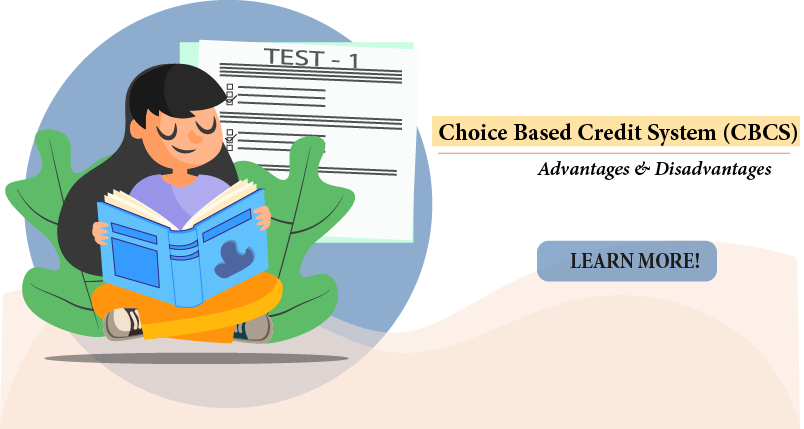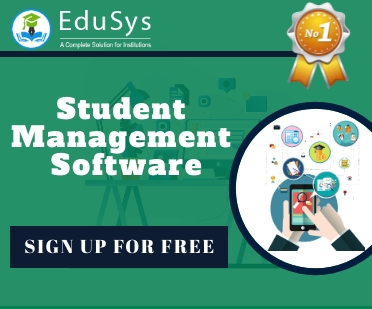What is Choice Based Credit System (CBCS)? Advantages & Disadvantages(2022)

The Choice Based Credit System (CBCS) is a concept proposed by the University Grants Commission of India (UGC) to give students an effective learning platform by moving from the conventional marks and percentage-grading system to a standard credit-based assessment method.
The CBCS system allows and encourages students in higher education to pick a course of their own choice from a rundown of prescribed elective, core, and selective foundation subjects. The introduction of the systems opens the door to smart and integrated classroom learning opportunities whilst preserving the aims and objectives of education.
Why Should Colleges/ Universities implement Choice Based Credit System (CBCS)?
The thought-out meaning behind the System is to meet the requirements of every student in order to stay up with the advancements in education methods in India and abroad.
In addition, the Choice Based Credit System provides students a simple and flexible method of versatility to move from one educational organization to another at any time and request for transfer of the credits he/she earned without losing scope on the syllabus. For example, if a student, studying the XYZ course in engineering at Anna University and wants to continue it at Mumbai University he/she can.
Features of the Choice Based Credit System:
Single Credit System: One credit per semester is equal to one hour of teaching, which includes lecture (L) or tutorial (T) and two hours of practical (P).
Choice Based Credit System has a Standard 10-point grading system:
|
Grade |
Point |
|
O (Outstanding) |
10 |
|
A+ (Excellent) |
9 |
|
A (Very Good) |
8 |
|
B+ (Good) |
7 |
|
B (Above Average) |
6 |
|
C (Average) |
5 |
|
P (Pass) |
4 |
|
F (Fail) |
0 |
|
Ab (Absent) |
0 |
Choice Based Credit System Advantages and Disadvantages
Advantages of CBCS System
- Students have the opportunity to choose courses of their own choice and interest
- The Credit System allows students to study at their own phase as per their interests
- Students can enroll in additional courses in their own interest to earn more credits
- Students moving from an old to a new college/ university can transfer the credits to the new migrating institution
- The Choice Based Credit System allows students to pursue one part of the course in one institution and the remaining in the other. The standard CBCS assessment method makes the evaluation of the performance of students easy on a single scale
- The guidelines for the System are set by the UGC commission of India
- The System improves the job opportunities for students
- The System is applicable to all central, state, and recognized colleges/ universities in the country
Disadvantages of CBCS System
- Lacks accurate estimation of marks
- Increases workload for professors and lecturers
- Since no two students have the same timetable, this creates confusion among the students
How EduSys Helps in Managing CBCS System?
EduSys is an ERP Software designed for all engineering, degree, medical, PG, private, government, and public colleges and universities to simplify and automate administrative works. The Application can seamlessly adapt to the Choice Based Credit System (CBCS) methods by providing three diverse login platforms for Admin, Lecturer, and Student. Additionally, it incorporates a sophisticated technology platform for information and communication.
Key Features in EduSys
- Automatic timetables and curriculum creation
- Manage student and staff data, create courses, allot curriculum, and assign/ transfer staff
- Staff can prepare a lesson and unit plans, mark attendance and allot assignments to students
- Report card generation
- Multi-branch management: Administration can manage multiple branches from a single location
- Examination management: easily allow students and teachers to exam halls
- ID Card and Hall-ticket generation
- Register and track courses and examination schedules of students
 19 Apr 2022
19 Apr 2022


